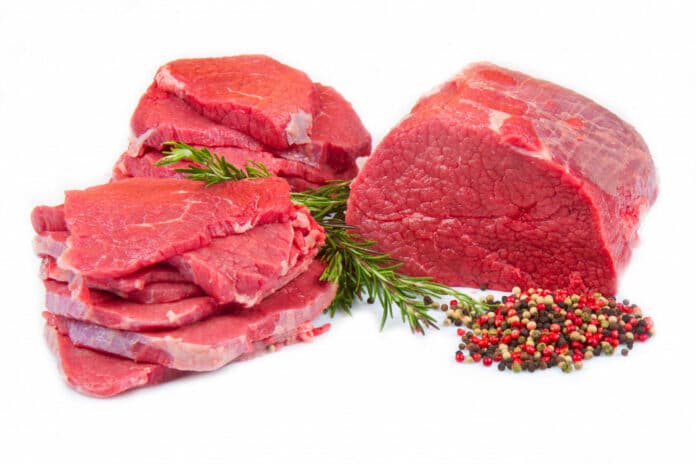Eating red meat twice a week could raise your risk of type 2 diabetes, says a study by Harvard T.H. Chan School of Public Health. The more red meat you eat, the higher the risk. But, if you replace red meat with healthy plant-based foods like nuts or dairy, your diabetes risk drops. This research was published on October 19 in The American Journal of Clinical Nutrition.
First author Xiao Gu, a postdoctoral research fellow in the Department of Nutrition, said, “Our findings strongly support dietary guidelines that recommend limiting the consumption of red meat, and this applies to both processed and unprocessed red meat.”
Previous research hinted at a connection between eating red meat and the risk of type 2 diabetes. But this new study, which examined many diabetes cases over many years, makes the link more certain.
The number of people with type 2 diabetes is growing fast, which is worrisome because it’s not only a severe illness but also a significant factor in heart, kidney disease, cancer, and dementia.
In this study, the researchers looked at the health records of 216,695 people from different health studies. They tracked their diets for up to 36 years and found that more than 22,000 developed type 2 diabetes.
Eating red meat, both processed and unprocessed, was linked to a higher risk of type 2 diabetes, says the study. Those who ate the most red meat had a 62% greater chance than those who ate the least. Every extra daily portion of processed red meat raised the stake by 46% and unprocessed red meat by 24%.
The researchers also checked what happens if you swap red meat for other proteins. Replacing it with nuts and legumes lowered the risk by 30% and with dairy products by 22%.
Senior author Walter Willett, professor of epidemiology and nutrition, said, “Given our findings and previous work by others, a limit of about one serving per week of red meat would be reasonable for people wishing to optimize their health and wellbeing.”
Beyond the health advantages, the researchers suggest that replacing red meat with eco-friendly plant protein sources can also contribute to lowering greenhouse gas emissions and combating climate change, offering various environmental benefits.
This study provides compelling evidence that higher red meat consumption increases the risk of developing type 2 diabetes. These findings underscore the importance of dietary choices in managing and preventing this prevalent chronic condition.
Journal reference:
- Xiao Gu,Jean-Philippe Drouin-Chartier etal., Red meat intake and risk of type 2 diabetes in a prospective cohort study of United States females and males. The American Journal of Clinical Nutrition. DOI: 10.1016/j.ajcnut.2023.08.021.
